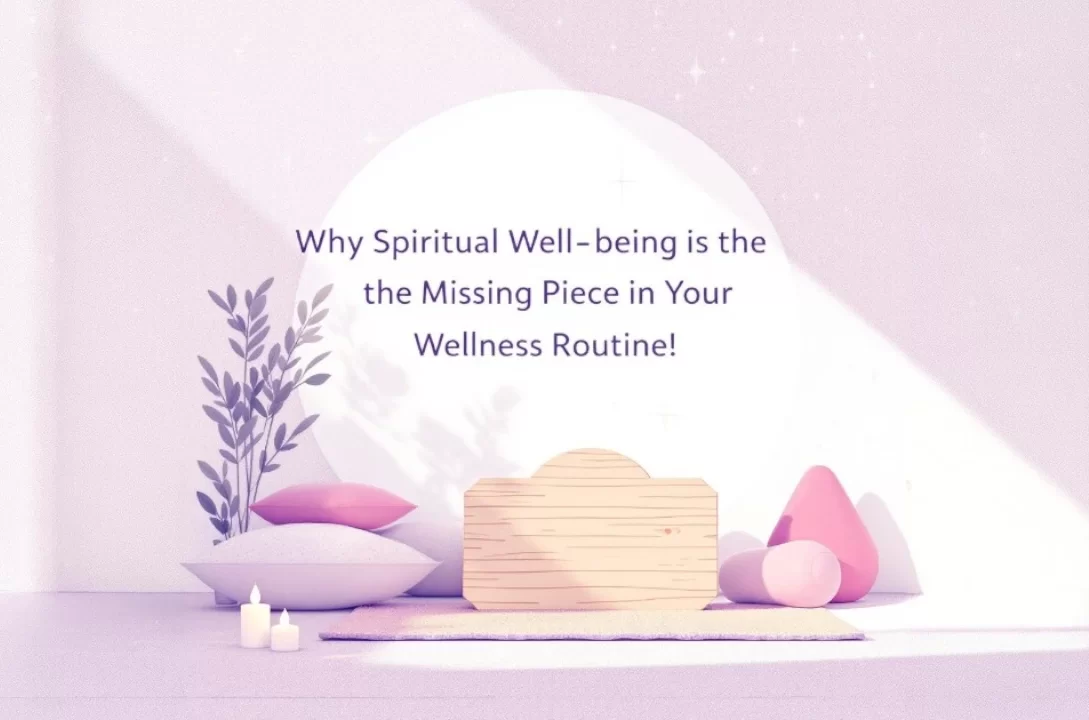Most wellness routines focus on physical fitness and mental health, but there’s a crucial element often overlooked—spiritual well-being. Whether you follow a religion, embrace mindfulness, or simply seek deeper meaning, nurturing your spirit can transform your overall well-being.
This guide explores why spiritual wellness matters, how to cultivate it, and the profound impact it has on stress relief, emotional resilience, and life satisfaction.
What Is Spiritual Well-being? (Beyond Religion)
Spiritual well-being isn’t just about faith—it’s about connection, purpose, and inner peace. It includes:
✔ Mindfulness & Presence – Living in the moment.
✔ Gratitude & Compassion – Cultivating kindness toward yourself and others.
✔ Purpose & Meaning – Aligning actions with personal values.
✔ Connection to Something Greater – Nature, humanity, or the universe.
Why it matters: Studies show that people with strong spiritual wellness experience lower stress, better mental health, and greater life satisfaction.
Signs Your Wellness Routine Is Missing Spiritual Balance
You might be neglecting spiritual well-being if you:
- Feel chronically empty despite good physical health.
- Struggle with existential questions (e.g., “What’s my purpose?”).
- Experience high stress without emotional relief.
- Lack deep connections with others or yourself.
The fix? Integrate spiritual practices into your daily life—no dogma required.
How Spiritual Well-being Enhances Overall Health
1. Reduces Stress & Anxiety
- Meditation & prayer lower cortisol (the stress hormone).
- Mindfulness helps break negative thought cycles.
2. Boosts Emotional Resilience
- Spiritual practices foster acceptance and inner strength.
- People with spiritual grounding recover faster from setbacks.
3. Improves Relationships
- Compassion and gratitude practices deepen connections.
- Forgiveness (a spiritual practice) reduces emotional baggage.
4. Increases Life Satisfaction
- Those with a sense of purpose report higher happiness levels.
- Spiritual alignment leads to more fulfilling career and life choices.
Simple Ways to Cultivate Spiritual Well-being (No Dogma Needed)
1. Start a Daily Mindfulness Practice
- 5-minute meditation (try Headspace or Insight Timer).
- Deep breathing exercises before meals or sleep.
2. Practice Gratitude Daily
- Keep a gratitude journal (write 3 things you’re thankful for each morning).
- Express thanks to others—verbally or through notes.
3. Spend Time in Nature
- Walk barefoot on grass (grounding reduces stress).
- Observe sunrises/sunsets—connects you to the universe’s rhythm.
4. Engage in Reflective Journaling
- Ask yourself:
- “What gives my life meaning?”
- “How can I live more authentically?”
5. Explore Different Philosophies
- Read about Stoicism, Buddhism, or Humanism.
- Attend a sound bath, yoga class, or silent retreat.
Common Myths About Spiritual Wellness
❌ “It’s only for religious people.”
✅ Truth: Spirituality is personal—you define it.
❌ “It’s time-consuming.”
✅ Truth: Even 5 minutes of mindfulness makes a difference.
❌ “It’s vague and unmeasurable.”
✅ Truth: Reduced stress, better sleep, and increased joy are tangible benefits.
FAQs
Do I need to believe in God to practice spiritual wellness?
No! Spirituality is about meaning, not religion. Atheists and agnostics benefit from mindfulness, gratitude, and purpose-driven living.
Can spirituality help with depression?
Yes. Studies link spiritual practices to lower depression rates, especially when combined with therapy.
What’s the quickest spiritual practice for busy people?
Gratitude journaling (2 mins/day) or box breathing (inhale 4 sec, hold 4, exhale 4).
How is spiritual wellness different from mental health?
Mental health focuses on psychological well-being; spirituality addresses deeper purpose and connection. Both are essential.
Can technology support spiritual wellness?
Absolutely! Apps like Calm (meditation), Day One (journaling), and Reflectly (gratitude) help cultivate mindfulness.
Final Thoughts: Complete Your Wellness Journey
True well-being isn’t just about a fit body and sharp mind—it’s about nourishing your spirit. By integrating simple spiritual practices, you’ll unlock deeper peace, resilience, and joy.
Ready to begin? Pick one small practice today—whether it’s mindful breathing or a gratitude list—and notice the shift.
Internal Links:
External Links:
Your wellness routine is incomplete without spiritual nourishment. Start today—your soul will thank you.















